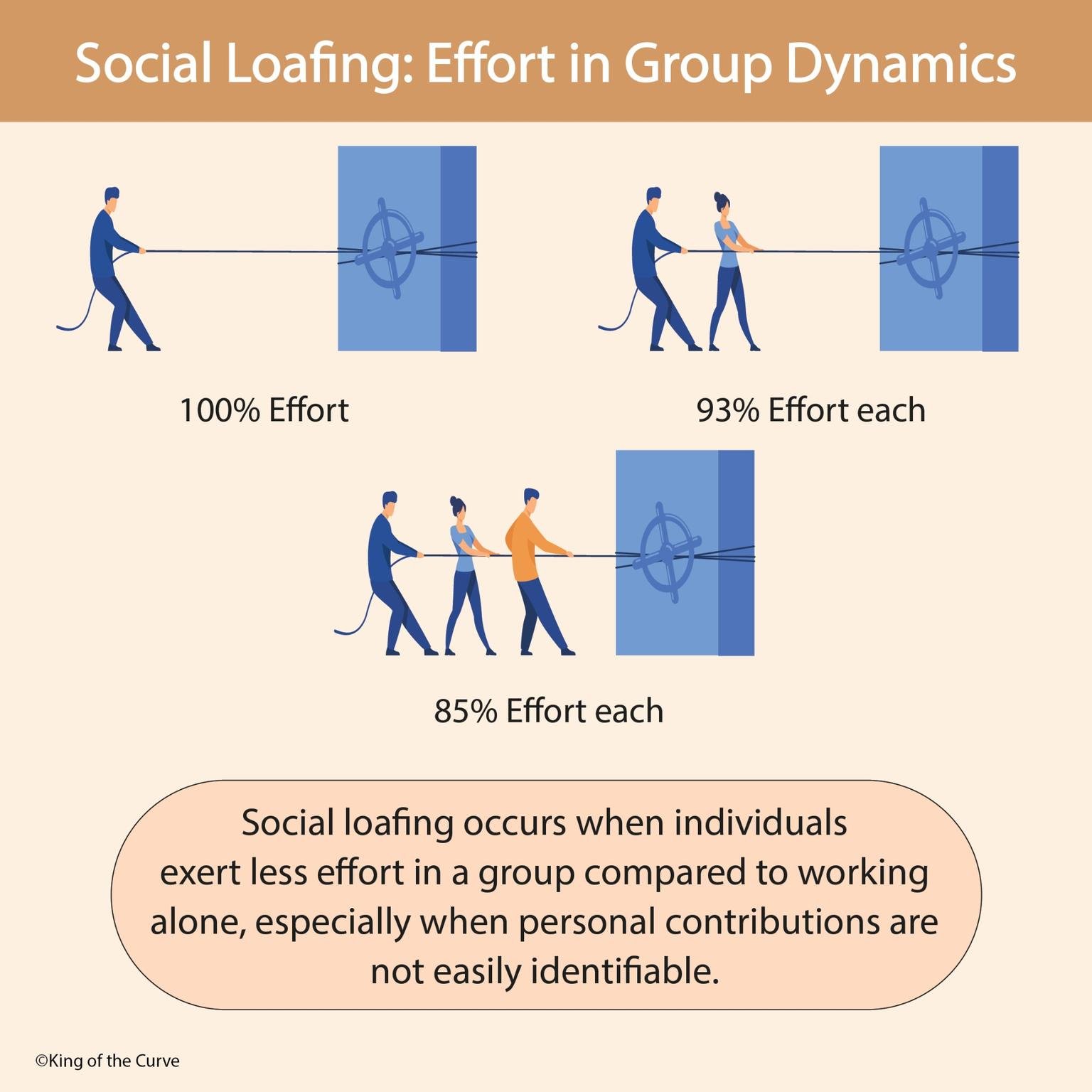🧠 Social Loafing on the MCAT: Group Dynamics and Effort Distribution
Social loafing is a fascinating concept in group psychology that frequently appears in MCAT passages and questions related to group behavior and sociology. It reveals how individual performance can decline in team settings, particularly when accountability is low.
This blog breaks down:
What social loafing is and when it occurs
How it differs across group sizes
Visual illustration of effort decline
MCAT-style scenarios and memory hooks
👥 What Is Social Loafing?
Definition: Social loafing occurs when individuals exert less effort in a group than when working alone. This reduction in effort usually happens when individual contributions are not clearly identifiable or group cohesion is low.
| Scenario | Effort Level |
|---|---|
| Working alone | 100% effort |
| Working in a group of 2 | ~93% effort each |
| Working in a group of 3 or more | ~85% effort or less |
🧠 Memory Hook: Think of a group tug-of-war where people gradually stop pulling as the team gets larger.
💡 MCAT Insight
Social loafing is tested under group processes, behavioral psychology, and social interaction categories on the MCAT. You may be asked to identify the behavior, interpret a scenario, or apply it to experiment-based passages.
💬 MCAT Tip: Social loafing is more likely in individualistic cultures (e.g., U.S.) than collectivist ones (e.g., Japan), where group identity is stronger.
📚 MCAT-Relevant Examples
| 🧠 MCAT Scenario | ✅ Correct MCAT Response |
|---|---|
| A study finds group brainstorming leads to fewer ideas | Social loafing due to diffusion of responsibility |
| Medical students complete fewer patient notes in groups | Group effort declines due to shared accountability |
| Participants pull a rope with less force in large groups | Classic social loafing experiment (Ringelmann effect) |
| Group project relies heavily on 1-2 people doing the work | Some members are loafing due to unidentifiable contributions |
🚀 Strategy for MCAT Mastery
🔍 Identify when individual contribution is untracked
🗣 Be able to compare social loafing vs social facilitation
👤 Know that anonymity + group size = increased loafing
🧪 Look for behavioral experiments testing group effort
📝 Sample MCAT Question
Q: In a study, participants pulled on a rope alone and in groups. Their effort dropped in group settings. Which term best describes this phenomenon?
A. Group polarization
B. Social facilitation
C. Social loafing ✅
D. Bystander effect
Answer: C — Social loafing explains reduced effort in group work settings.
🧭 Summary
Social loafing = effort loss in group tasks
It's due to low accountability and diffusion of responsibility
Often tested in psychology/sociology MCAT passages
Contrasts with social facilitation (effort increases when watched)
📱 King of the Curve Tools
✅ Start our MCAT Psychology Trial
📚 Master every psych/soc topic visually
🎯 Use daily MCAT-style flashcards on group behavior
Frequently Asked Questions (FAQs)
-
Aim for 4-6 focused hours, ensuring you incorporate breaks to avoid burnout.
-
Practice mindfulness techniques, take practice exams under realistic conditions, and maintain a balanced lifestyle.
-
Set short-term goals, seek support from mentors, and reward yourself for small achievements.
-
Regular exercise improves focus, reduces stress, and enhances overall mental clarity.
-
KOTC offers personalized learning tools, gamification features, and adaptive question banks to help students stay on track without burnout.


